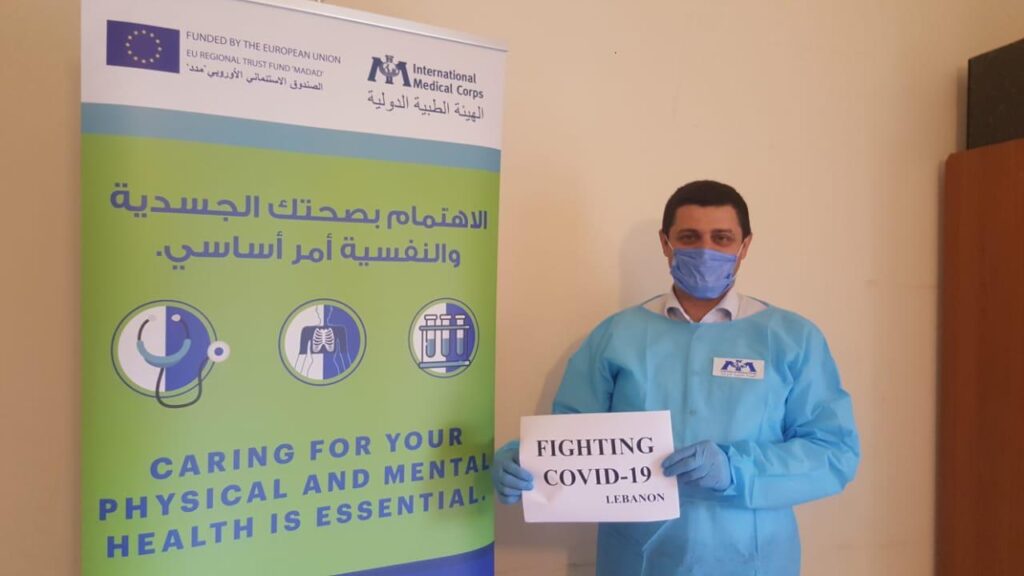Connections are important. When Taher Taher first joined International Medical Corps in 2012, he worked as a Health Officer Assistant on a program that supported secondary healthcare systems in Lebanon, part of our response to the war in Syria. At the time, many injured refugees were coming to Akkar District, in northern Lebanon, looking for medical treatment. Even though the hospitals in the district had agreements in place with International Medical Corps and other NGOs, they sometimes turned these refugees away. Taher, who had previously worked as a head emergency-room nurse, leveraged his existing relationships with the hospitals to ensure that everyone who sought treatment received it.
“I would step in to make sure that the hospital was doing what we contracted them to do,” Taher recalls. “I know that made a big difference in many refugees’ lives.”
It remains one of things he is proudest of achieving in his ten years of service to our organization. And today, he’s still working hard to make sure that people have access to the healthcare they need. Now a Health Area Manager in Akkar District, Taher works with local officials to reopen shuttered primary healthcare centers and launch new centers in unserved areas.
“In a village called Tel Maayan, there was a center that was not operational. We approached them about working together, and now they service around 10,000 people per year,” Taher says. “Another area called Jabal Akroum, on the northern border with Syria, didn’t even have a primary healthcare center, so we approached the biggest municipality and partnered with them. We now have a functional center that services the residents of seven villages near the Lebanese–Syrian border.”
Over the past two years, Taher’s attention has turned to expanding healthcare access for COVID-19 patients in Akkar District through homecare programs that are being piloted by three primary healthcare centers.
“A team of doctors and nurses visits COVID patients at home,” Taher explains. “The nurses do an assessment and teach the patients and their families how to take care of and protect themselves. They continue to follow up on these cases by phone, and the doctors visit the patients based on needs. If patients need an oxygen machine or any other medication that isn’t included in our services, we assess the situation and collaborate with other healthcare partners in the area to make it happen. If patients need to go to the hospital, we refer them to the Ministry of Public Health.”
Because of programs like these, Taher believes that International Medical Corps is seen as the leading health agency in the country and that our staff members are viewed as experts in their respective areas. But for Taher, International Medical Corps represents something even more: a home away from home.
“I really love the family spirit that we have at the office in Akkar,” he says. “Before the pandemic forced us to work from home, my team and I used to make it a point to come to work early to have a coffee together and discuss the workload of the day. Then we would all have lunch together. We used to have a cook come to the office and make food for us. That was a really excellent bonding exercise.”
Though Taher misses the office camaraderie, he’s got plenty of other ways he’s staying connected. A trained paramedic, Taher has also worked with the Red Cross since 1996. “I am there every weekend to give training sessions to Red Cross volunteers,” he says. It’s hardly surprising that Taher’s dedication to expanding healthcare access doesn’t end with the work week—after all, it seems that helping people is just in his blood.
